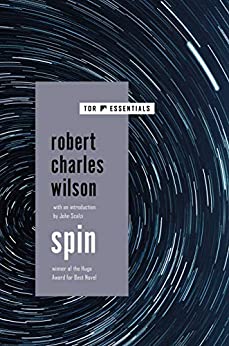More on this book
Community
Kindle Notes & Highlights
I had once asked Jason why this was. He said, “Consider what we’re asking them to believe. We’re talking about, globally, a population with an almost pre-Newtonian grasp of astronomy. How much do you really need to know about the moon and the stars when your life consists of scrounging enough biomass to feed yourself and your family? To say anything meaningful about the Spin to those people you have to start a long way back. The Earth, you have to tell them, is a few billion years old, to begin with. Let them wrestle with the concept of ‘a billion years,’ maybe for the first time. It’s a lot
...more
read, it’s second nature to you, but for most people it’s a whole new worldview and probably offensive to a bunch of their core beliefs. So let that sink in. Let that sink in, then deliver the real bad news. Time itself is fluid and unpredictable. The world that looks so ruggedly normal—in spite of everything we just learned—has recently been locked up in a kind of cosmological cold storage. Why has this been done to us? We don’t exactly know. We think it’s caused by the deliberate action of entities so powerful and inaccessible they might as well be called gods. And if we anger the gods they
...more
I had once read an interesting detail in a book about the first manned moon landing back in 1969. At that time, the book said, some of the very elderly—men and women born in the nineteenth century, old enough to remember a world before automobiles and television—had been reluctant to believe the news. Words that would have made only fairy-tale sense in their childhood (“two men walked on the moon tonight”) were being offered as statements of fact. And they couldn’t accept it. It confounded their sense of what was reasonable and what was absurd.
laboring. No single thing abides, but all things flow. I couldn’t remember where I had read that. “Heraclitus,” Diane said.
“She knows better,” Jason said after she left. “The gadget’s trivial. It’s the network that’s useful. Not the gadget but the network.”
Fourths weren’t allowed to vote in council elections—no one wanted a planet run by venerable ancients for their own benefit. But each of the Five Republics had a sort of judicial review body, the equivalent of a Supreme Court, elected solely by Fourths. Fourths were both more and less than adults, as adults are both more and less than children. More powerful, less playful; freer and less free.
Then, in its senescence as a complex machine, the replicator colony would break down into individual clusters of simple cells, identify another bright or nearby star, and use accumulated volatiles mined from the host cometary nucleus to propel its seeds out of the solar system. (They would leave behind a tiny fragment of themselves to act as a radio repeater, a passive node in a growing network.)
the Fourth Age was exactly what Wun told you it was—a longevity treatment and a social institution. But it’s evolved since then. For Wun’s generation the Fourth was more like a platform, a biological operating system capable of running much more sophisticated software applications. There isn’t just a four, there’s a 4.1, 4.2—if you see what I mean.”
“You’re telling me the replicators ran into other replicators?” “An ecology of replicators. The stars are a jungle, Tyler. Fuller of life than we ever imagined.”
The predator (Jase explained) is another kind of semiorganic autocatalytic feedback system—another colony of self-reproducing cellular mechanisms, as much machine as biology—and the predator is plugged into its own network, this one older and vastly larger than anything the terrestrial replicators have had time to construct during their exodus from Earth. The predator is more highly evolved than its prey: its subroutines for nutrient-seeking and resource-utilization have been honed over billions of years. The terrestrial replicator colony, blind and incapable of fleeing, is promptly eaten. But
...more
Jason pursed his lips impatiently. “Tyler, no. You don’t understand. The Hypotheticals are the von Neumann ecology. They’re one and the same.”
“To preserve it,” Jason said. “Preserve it against what?” “Its own senescence and eventual death. Technological cultures are mortal, like everything else. They flourish until they exhaust their resources; then they die.”
For the Hypotheticals, then, the Spin was meant to preserve us—and dozens of similar civilizations that had arisen on other worlds before and since—in our technological prime. But we weren’t museum pieces, frozen in place for public display. The Hypotheticals were reengineering our destiny. They had suspended us in slowtime while they put together the pieces of a grand experiment, an experiment formulated over billions of years and now nearing its ultimate goal: to build a vastly expanded biological landscape into which these otherwise doomed cultures could expand and in which they would
...more


